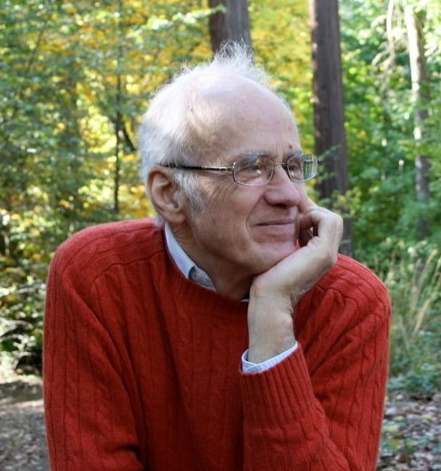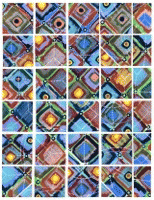Individual choice can help solve some problems, but others yield only to collective action. In the later case, trust in individual steps is dangerously misleading. At the end of his film, "An Inconvenient Truth," Al Gore asked us to switch from incandescent to florescent light bulbs: brilliant, diagnosis, ridiculously inadequate treatment.
Consider a life-and-death example from the past, then a parallel in our time.
Seventy-five years ago, on a lovely day in May, neutral Holland was invaded by the Nazis or, as I've heard an Amsterdam native say, by "our neighbor to the east." Of course this phrase barely conceals a critique: good neighbors don't invade. And during that era, the "east" took on sinister connotations: no longer rosy-fingered dawn but now Hitler and rumors of the camps.
The experience of the Netherlands under Nazi occupation has lessons for today. Some things can be done by brave and well-motivated individuals, as some Dutch people, at great risk, hid from the Nazis a small percentage of individual Jews (and non-Jewish men called to work in German factories). Other situations take coordinated political action. In the Netherlands the latter might have taken the form, for example, of a program to sabotage the very population registries and good order of which the Dutch, in other circumstances, had reason to be proud.
Tolerance was a feature of the political culture of the Netherlands. The country had been a refuge not only for Jews expelled by Spain in 1492, but also for dissidents from the United Kingdom, some of whom ended up crossing the Atlantic.
Yet a higher percentage of Dutch Jews was killed by the Nazis than in any other Western European country. Looking at the same situation, Yad Vashem, the Holocaust center in Jerusalem, has named more "righteous" helpers in the Netherlands than in any other country except Poland. What accounts for the seeming contradiction?
Yad Vashem was looking at individual acts of heroic help. The statisticians were measuring a failure of collective action.
In the U.S. with our traditions of individualism, we often default to the view that private action will suffice (or even to denying a challenge). Take global warming, for example. Many appear to believe that if a fringe of people individually decide to take such actions as living more simply, driving less, buying a hybrid or electric car, installing efficient appliances, choosing biodegradable detergent, and perhapss getting solar panels and insulating their houses, then the problem might go away.
It wouldn't. A belief in the adequacy of taking individual steps is almost the moral equivalent of denial. It's as useless to focus on an inadequate response as simply to deny the problem. Without collective political action, the problem would at best be slightly alleviated.
The transition to an energy system no longer reliant on fossil fuels may seem impossible, but so, at one time, did many things. A specialist on citizen action, Paul Rogat Loeb gave us a book titled The Impossible Takes a Little Longer. The pioneering citizen diplomat Sharon Tennison called her memoir, The Power of Impossible Ideas. Vaclav Havel, who went from dissident playwright to President of his country, collected essays under the title, The Art of the Impossible. In each case, collective action is what made the impossible, after a struggle, into an accepted fact.
I love the story about a skeptical observer who hears a visionary idea and claims it's not even worth refuting (or as a physicist once said cuttingly, it's not even wrong). If in a few years the visionary idea gains traction, the observer exclaims, "we have to stop this before it wrecks civilization." Then if the practice is eventually accepted, the same person can be heard to say, "well, I thought of this myself ten years ago." (The correct response is the reply, "of course you did, and what can we count on you to do today?")
In the matter of hiding people in occupied Holland, courageous individual action had a vital effect, even if the numbers were limited. With regard to the challenges of today, collective action is necessary.






